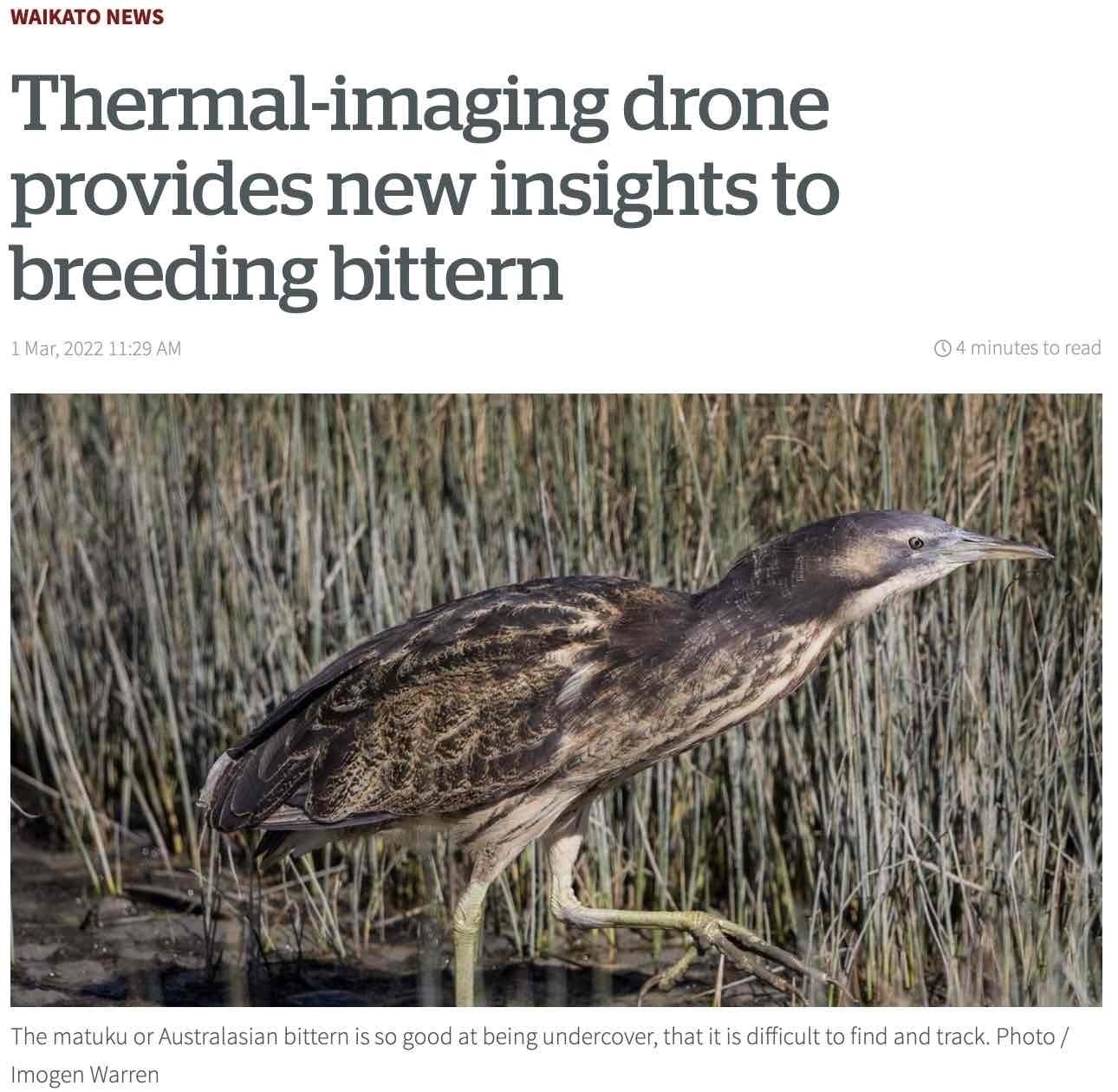
Matuku-hūrepo | Australasian Bittern were common in New Zealand in pre-colonial times but are now classified as Threatened – Nationally Critical, numbering fewer than 1000. There are three breeding sites at Waikawa Beach: two along Strathnaver Drive (mid way and near the north beach track) and one at the south end of Reay Mackay Grove.
Update, February 2023: an expert has let us know these aren’t breeding sites, but feeding sites.
The bird are really shy though and not at all easy to spot. This Waikato News article from 01 March 2022 tells of using thermal imaging by drone to locate them and track their welfare and habits. Thermal-imaging drone provides new insights to breeding bittern. Edited highlights from the article below.
The matuku or Australasian bittern is so good at being undercover, that it is difficult to find and track.
… Introduced predators, native Australasian harriers (kāhu), and reduction in wetland habitats and water quality are their main threats.
The males are known for an unusual booming call to attract females. …
… the drone trial flights were carried out at five sites around Bay of Plenty and Coromandel…
Researchers and volunteers … spent many hours locating male bittern to determine where their territories were. Then ecologists at Flightworks helped find females and their nests using a thermal-imaging drone.
The flights coincided with bitterns’ peak breeding season activity. Each flight lasted about 20 minutes, covering 10 to 15 hectares. Across the 49 flights, researchers spotted at least 11 bitterns and two nests. The presence of the drone did not disturb the bitterns so their behaviours were also captured on video…
When nests were found, researchers would walk in on foot to position small camera systems which captured bittern activity that will be crucial to help determine why the bittern population is still falling. The drone also captured the amount of time females leave the nest, development and fledging of chicks, and their predation by other species.…